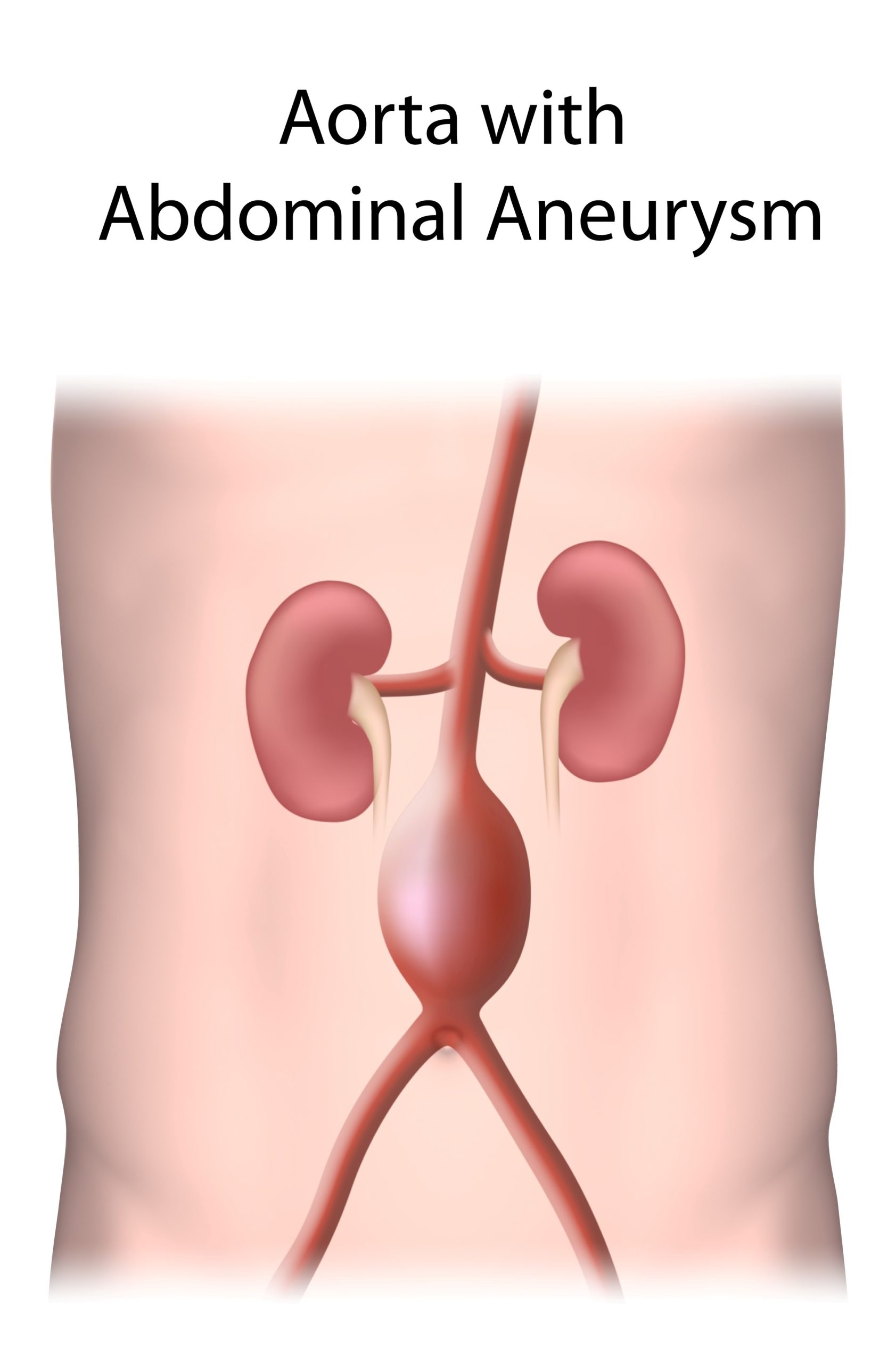Abdominal Aortic Aneurysm (AAA) is an abnormal dilation or stretching of the aorta. The aorta is the main artery that comes from the heart and supplies blood to the body. The natural history of an aneurysm is to grow larger or stretch more with time. This dilation leads to weakening of the vessel wall and placing the aorta at risk of rupturing.
Multiple risk factors place a patient at risk for AAA. These include but are not limited to: being male, over 50, close relative of someone with an AAA, high blood pressure, and smoking.
How Do I Know if I Need to See a Vascular Surgeon?
If you have AAA risk factors, it is essential to speak with your medical provider about monitoring and next steps to prevent the development of AAA. However, if you have AAA risk factors and experience symptoms of an unruptured AAA, such as leg pain when walking, leg swelling, or non-healing wounds, then schedule an appointment with a vascular surgeon.
AAA Management and Treatment Options with Michigan Vascular Center in Flint, Michigan
The Michigan Vascular Center has actively promoted vascular health awareness and offers free ultrasound screenings to assess your risk of aneurysm (see our contact form for an appointment).
If you are over 50 years old and your parent or sibling has been diagnosed with an abdominal aortic aneurysm, discuss this with your primary care physician or call us TODAY.
Get Your Abdominal Aneurysm Diagnosed ASAP
What is an Abdominal Aortic Aneurysm?
Abdominal Aortic Aneurysm (AAA) is an abnormal dilation or stretching of the aorta. The aorta is the main artery from the heart and supplies blood to the body. The natural history of an aneurysm is to grow larger or stretch more with time. This dilation weakens the vessel wall and places the aorta at risk of rupturing.
What are the Risk Factors for AAA?
Multiple risk factors place a patient at risk for AAA. These include, but are not limited to:
- Gender, such as male
- Over 50 years of age
- Family history of AAA
- High blood pressure
- Smoking
Symptoms of AAA
In most cases, AAA does not bring symptoms unless it has ruptured. If ruptured, it is essential to seek medical assistance immediately.
Key symptoms of a ruptured AAA include:
- Severe and sudden pain in the abdomen, lower back, or legs
- Diziness
- Lightheadedness
- Fainting
- Low blood pressure
- Nausea or vomiting
For symptoms of unruptured AAA, look for these signs:
- Aching or throbbing pain in the abdomen or lower back
- Tenderness in the abdomen
- Pulsing sensation in the abdomen
It is important to note that most cases of AAA are asymptomatic, meaning symptoms may not arise until it ruptures. This is why it is crucial to know the risk factors, symptoms, and treatment options to prevent further complications from this condition.
Types of AAA
There are different types of abdominal aortic aneurysms, which are categorized by their shape and size. Those types being:
Fusiform: One of the more common types of abdominal aortic aneurysm, this type has a bulging appearance on all sides.
Saccular: This type of AAA has bulging localized to one side of the aorta.
Pseudoaneurysm: Also known as a “false” aneurysm, this type creates a bulging appearance to the vessel wall due to trauma or injury.
Small AAAs: Ranging in size from 3 – 4.4 cm, these types of aneurysms are usually slow-growing with a low risk of rupture.
Medium AAAs: Ranging in size from 4.5 – 5.4 cm, these aneurysms warrant monitoring for continuous growth or possible rupture.
Large AAAs: Classified as 5.5 cm or higher, these types of aneurysms are fast-growing and usually require surgical intervention due to their higher risk of rupture.
Through imaging such as CT scans, ultrasounds, or MRIs, medical providers can determine the size and shape of aneurysms to determine their risk of rupture.

Diagnosis And Treatment
An AAA can be identified and followed over time with a simple and painless ultrasound study done in an accredited vascular lab.
Once the aneurysm exceeds a certain size, the risk of rupture is high enough to warrant repair of the aorta. 3D computer modeling of the aorta using CT scan technology is then useful for operative planning.
The surgeons of MVC are skilled in traditional open repair as well as endovascular or minimally invasive repair of the aorta through small groin incisions. Patients are also offered to participate in national clinical trials of endovascular repair.

